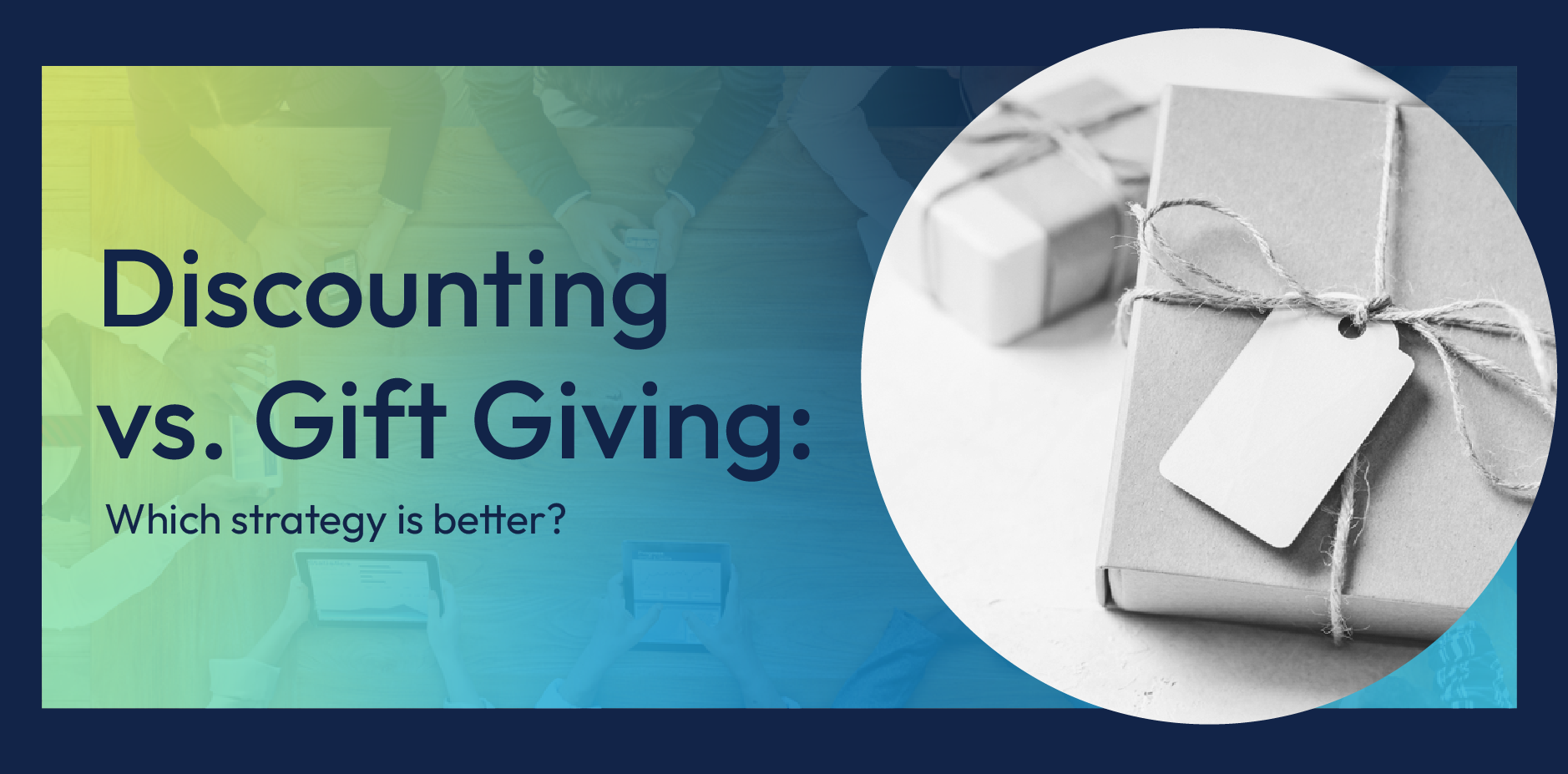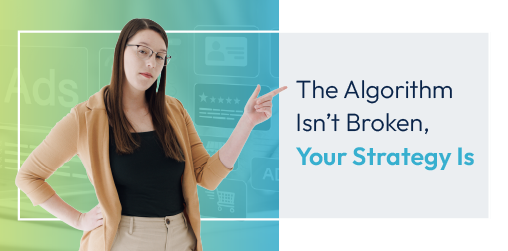Discounting vs Gift Giving: Which is Better?

Discounting is an age old marketing tactic to boost sales and increase customer acquisition, but new research suggests that discounts can have a detrimental effect on brand image and margins.
Discounting perpetuates unrealistic customer expectations.
Is there a more effective way to build customer loyalty? Yes! Research has also revealed that delighting your customers with gifts and rewards can form unprecedented emotional connections without corroding margins.
Below, we explore the problem of discounting and the promise of gifting.
What's the Problem With Discounting?
Discounting can quickly erode the perceived value of your products or services, resulting in a few unfortunate consequences.
1. Discounting creates an expectation of continued discounting
Discounting compounds upon itself until customers begin to expect a discounted price, and full price – let alone maximized margins – feels outrageous. After all, if a customer perceives the value of your product or service at a discount, they will not pay more for a product of lower value.
2. Discounting often complicates business dealings
Discounting often occurs selectively, generating different price structures that can become confusing for internal management – especially for large organizations.
3. Discounting can erode brand legitimacy
As mentioned, discounting can erode the customers’ perceived value of your product or services.
4. Discounting falls short
Perhaps most importantly, discounting does not build customer allegiance. Competing on price alone fails to generate loyalty, build emotional connections, or differentiate a brand.
To summarize, occasional discounting may have a place in the marketing world, but it can ultimately erode margins and affect brand image.
Why Consider Gifts and Rewards Instead?
Gifts and rewards are in a similar category to discounts. The primary difference? Brand positioning. Rewards do not only bring in more revenue than discounts; they also maintain product margins and a positive brand image.
Ed Ward of Blackhawk Network shares: “40% of marketers reveal they use rewards to help them maintain a premium brand image. More than half say they use rewards to drive sales (56%) and foster customer engagement (53%), while nearly one in three (30%) use rewards to avoid losing revenue to competitors.”
How to properly employ gifts and rewards
1. Incorporate customer choice in your gifting.
Consider what you’re giving away. Rather than always opting for a high-value item, consider the emotional experiences tied to the gift. For example, promote customer choice by gifting a specific, multi-retailer gift card or an experience. Customers will remember the item they picked out themselves or memories made with loved ones, rather than a free high-value item they may already own. Ward writes that, “These kinds of rewards allow a brand to become a part of a customer’s life.”
2. Ensure that your gifts do not benefit competitors.
Providing thoughtful gifts also prevents your customers from benefiting competitors. For example, cashback could be used to purchase a competitors’ product.
3. Make sure your gift is branded.
This ensures that your brand remains front and center in your customers’ mind.
4. Consider ongoing rewards.
Ongoing rewards, or at least a level of ongoing contact beyond sign-up, can be beneficial to building a lasting connection with your customers.
5. Rewards programs and gifts don’t have to be expensive.
Even a voucher for free coffee or free lunch can go a long way. Marketers can identify KPIs or initiatives that need to be enhanced and use simple rewards or gifts to maximize the efficacy of these programs.
RivalMind: Customer Service Specialists
At RivalMind, we prioritize client retention. First and foremost, we deliver consistent communication, client education, and excellent service – but we also love to send gifts to demonstrate our appreciation for our customers.
Learn more about our services on our website, or get in touch with our team directly. We can be reached at 331.228.9636, through our online contact form, or via DM on any of our social media channels. We look forward to starting a conversation!

Meet the Author
Matt Scroggs
CMO RivalMind
Hi, I'm Matt Scroggs, a digital marketing strategist. For two decades I served as the senior digital marketer for several global, iconic brands. Today, I'm the chief marketing officer at RivalMind, an agency 100% dedicated to helping companies thrive by driving transformational growth through innovative digital marketing. I'm also a lifelong Cubs fan, a faithful family man, and a web analytics junkie—relentlessly tracking conversions, loyalty, and advocacy, which are often as elusive as the pennant!
Specialties: Helping Businesses Grow, Marketing Strategy, Idea Guy
Looking for more organic website traffic?
Welcome to RivalMind. Our purpose is to help your business thrive. We are a digital marketing agency that offers SEO, PPC, Web Design, Social Media and Video Solutions as tools to our clients for online business development and growth.
Contact us today to get started!
Blog Contact Form
Connect with Us:




